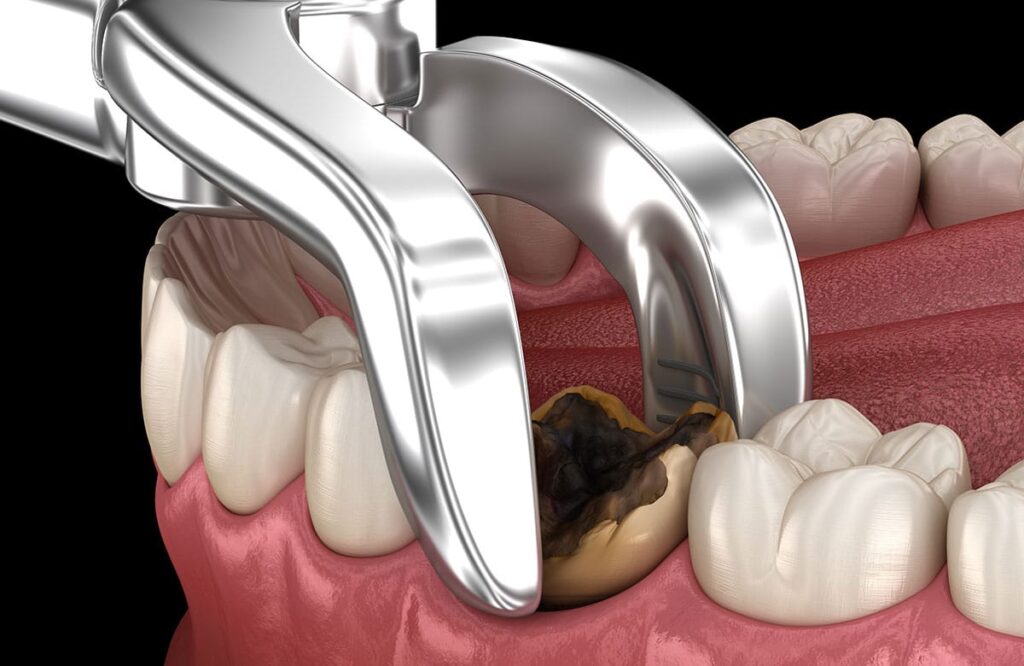Tooth Extractions
Prepare for oral surgery with ease and ensure a smooth recovery with these helpful tips and precautions.

How to Prepare for Oral Surgery/minor surgeries?
- Be Informed: Schedule a consultation to understand the procedure, risks, and benefits. Prepare questions to ask your dentist or oral surgeon.
- Arrange Transportation: Have a friend or family member provide transportation.
- Eat Light: Avoid fasting or heavy meals.
- Dress Comfortably: Facilitates vital sign checks and IV placement.
- Bring a Container: Carry a box for storing dentures or bridgework during the procedure.
- Arrive Early: Complete paperwork and relax before surgery.
- Provide Medical History: Inform about medications, surgeries, or allergies.
- Loose teeth due to severe gum/bone disease.
- Large cavities, broken teeth, or infections.
- Over-retained deciduous teeth or impacted wisdom teeth.
- Local anesthesia blocks pain during extraction.
- Temporary numbness may occur but subsides gradually.
- Simple extractions may not require stitches.
- Complex cases or multiple extractions may need stitches.
- Tooth extraction does not affect vision.
- Infection can spread, causing swelling, pain, and systemic complications.
- Pain, infection, dry socket, or relapse are rare but potential complications.
- Open extraction creates space between the tooth and bone for removal.
- Medical clearance ensures suitability for the procedure and modifies medications if needed.
- Therapeutic extractions may be necessary to correct alignment issues.
- Specialist oral and maxillofacial surgeons perform extractions at Nirmal Super Specialty Dental Hospital.
